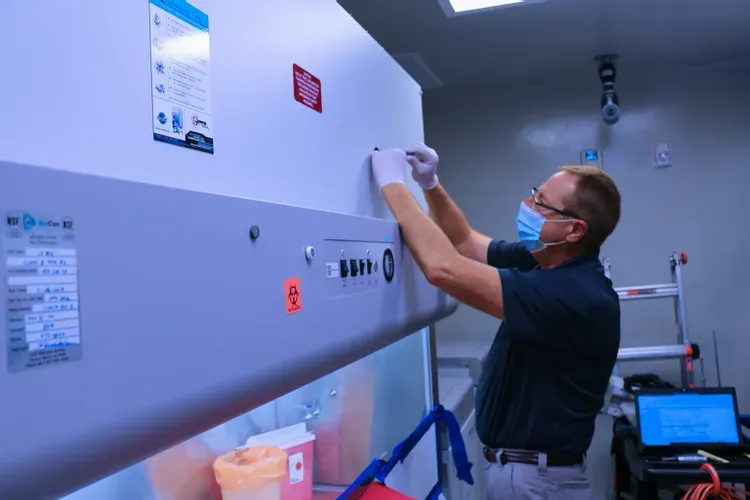What are the keys to laboratory efficiency?
Managing Energy Usage
Laboratory efficiency starts with energy management. Lab managers should be aware of how much electricity their laboratory is using and what equipment is using it. This way changes can be made to reduce their lab's power consumption. Check out our suggestions for lowering your energy usage below.
Forecasting And Building Management Systems
Information from electricity meters can be used to forecast how much power will be used in the laboratory. Spike from this baseline can help you identify potential problems in energy consumption. Installing a Building Management System can also be beneficial for monitoring power consumption over time and provide insight for making adjustments.

Adjusting Equipment Settings
Laboratory equipment can be programmed to use less power by adjusting the settings. For example, turning on timers that turn off energy-consuming items like computers and printers when they are not in use. This is a simple way for lab managers to save on electricity.
Individual Power Switches
Individual power switches on laboratory appliances is another way to save a lot of electricity. Standard lab setups have many devices plugged into one outlet or circuit breaker box with power switches all on the same switch. By adjusting to an individual switch for each appliance you can eliminate energy wasted on unused equipment.
Plug Load Management Devices plugged into the wall account for a large portion of any lab's energy use. This includes things like computers, centrifuges, portable lighting, fluid and vacuum pumps, electronic balances and more. This however excludes things like HVAC systems, lighting, water heating etc.
In high efficiency buildings, plug loads may account for more than 50% of the total energy consumption. -Poll, S. and C. Teubert (2012)
So how can we reduce this number?
Choosing energy efficient equipment to replace legacy equipment, setting effective energy policies, promoting beneficial occupant behavior, and employing plug-load controls such as load sensing and scheduled timer controls. -Poll, S. and C. Teubert (2012).
Considering Energy Efficient Laboratory Equipment
Laboratory equipment is a significant part of laboratory energy usage. Energy efficient laboratory equipment can go a long way. Laboratory equipment such as fume hoods, surgical lights and even laboratory refrigerators often have more energy-efficient models that can help reduce energy usage.
Refrigeration
Lab refrigerator size is another consideration when it comes to laboratory efficiency. Large laboratory refrigerators require a lot of electrical current, while smaller laboratory refrigerators can be more energy efficient. Managers should be sure to not buy one that is too large for their laboratory needs.
Lighting
Laboratory lighting also has significant implications on efficiency. There are many different types of laboratory light fixtures that can have difference performance ratings. Laboratory managers should research the lab light fixtures they are considering so that they can purchase ones with low energy consumption ratings.
Ventilation
Laboratory efficiency is also impacted by laboratory ventilation, which helps maintain a clean and healthy laboratory environment for lab personnel. Adjusting airflow rates, installing heat recovery units and using demand control ventilation are all effective strategies.
TAB Testing
Conducting TAB is a key part in lab optimization project. Adjustment to dampers and valves can improve lab air flow. TAB involves measuring things like temperature, pressure, electrical characteristics, velocities and quantities of air and water. These measurements can be used to compare the HVAC system’s designed performance versus its actual performance.
Proper Lab Maintenance
With proper maintenance lab equipment can also become more efficient. Regular service intervals reduce the risk of high-cost repair or replacement expenses down the road.
Need Help Improving Your Laboratory Efficiency?
Talk to the experts at Balcon. Give us a call at 712-309-3680.







